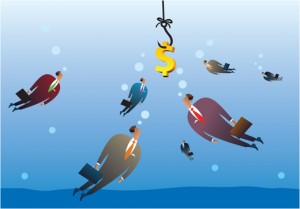Clément Mallet’s post “Sourcemap, Where things come from.” introduced me to a very interesting tool. Sourcemap is an online platform developed by Leonardo Bonanni from the MIT Media Lab. It is meant to map in an intuitive and design way supply chains and environmental footprints of products. It is also a social network of individuals and businesses willing to share, for the sake of transparency, information about how things are produced. A barcode technology has even been developed allowing smart-phones to scan sourcing information. In an article from the Boston Globe, Bonanni also announced his wish to extend information beyond carbon measures to water usage, toxic materials uses and releases, landscapes modifications (such as forests turned into farmland), and measures of worker quality of life. Wow!
As Clément pointed it out; since Sourcemap is a crowdsourced product, it faces the issue of inaccurate information. On the other hand, without using crowdsourcing, Sourcemap could never pretend to gather the amount of information it requires to develop into the revolutionary data base it ought to be. Through its signing-up procedure, Sourcemap has taken initiatives to reduce misinformation.
What I like most about Sourcemap is how it fulfills the needs of a growing share of responsible consumers and rides the wave of sustainability in an innovative way that empowers them. It creates incentives for businesses to develop towards a more social and eco-friendly way of producing and selling. It is also an interesting tool for enterprises to manage supply chains and strengthen direct relationships with customers. Who knows, we might see more successful Direct Business Model stories (à la Dell) develop thanks to Sourcemap?
 Iris mentions the fact that these ads featuring young girls in provocative and inviting poses may very much disturb and frighten the public. She also mentions, in a graver way, the Continue reading
Iris mentions the fact that these ads featuring young girls in provocative and inviting poses may very much disturb and frighten the public. She also mentions, in a graver way, the Continue reading 
